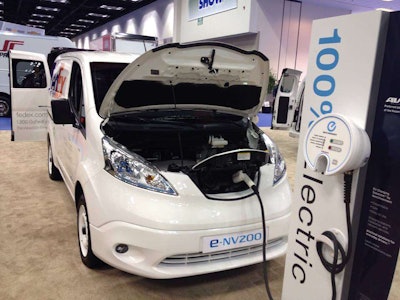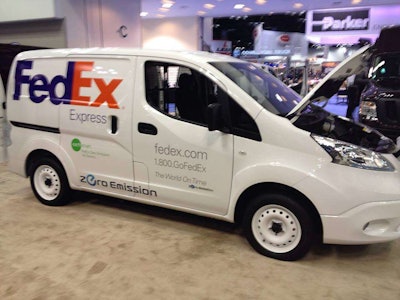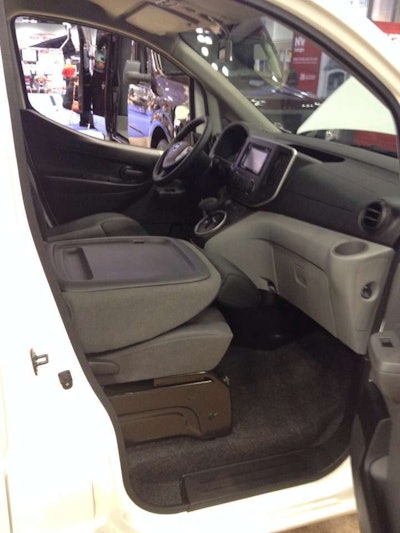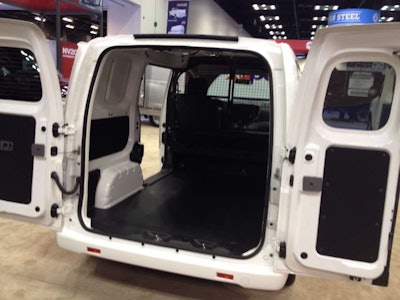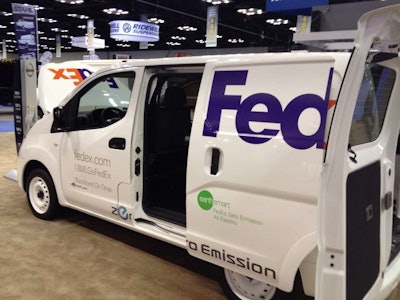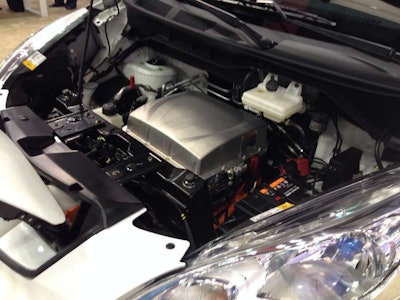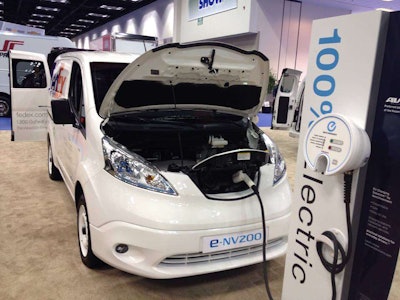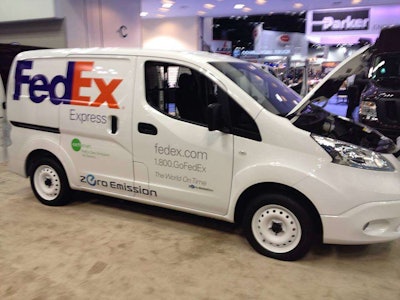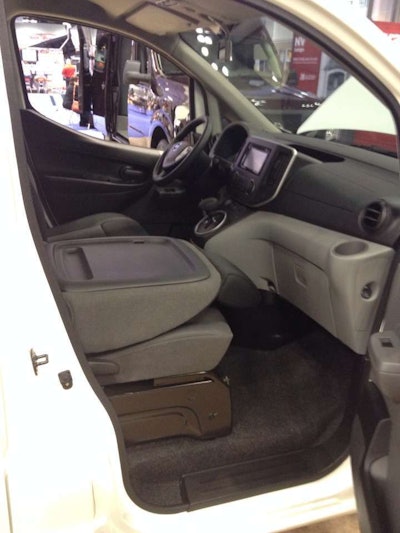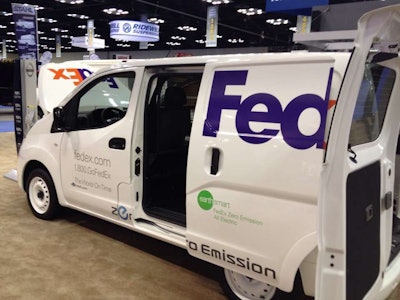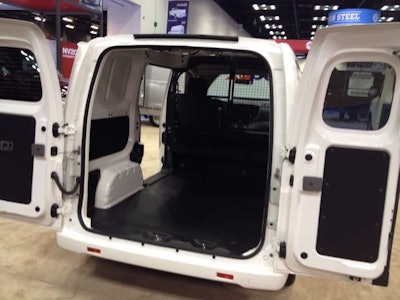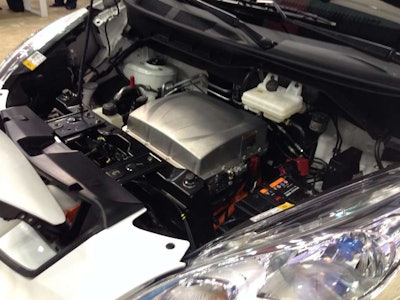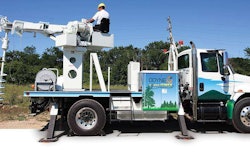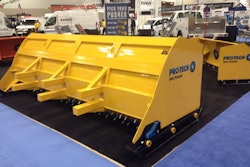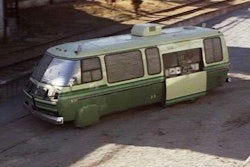Nissan will send one of its new fully-electric vans to FedEx Express by month’s end as the package delivery behemoth looks to further shrink its carbon footprint.
Evan Fulton, Nissan Planner – Light Commercial Vehicle said at the Work Truck Show in Indianapolis, Ind. Thursday that FedEx will test the 100 percent electric compact cargo vehicle as part of its delivery fleet in the Washington, D.C. area.
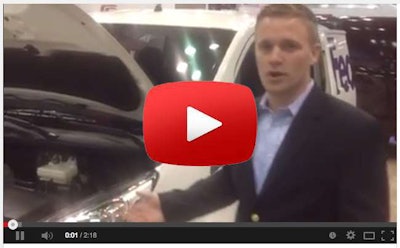
FedEx Express says it currently has 167 electric vehicles and 365 hybrid electric vehicles in the U.S., France, Germany, Italy, Japan and China, including the units that will be deployed in Brazil starting in January. By the end of May, the company plans to increase these numbers to 222 and 393, respectively.
From 2005 to 2012, the introduction of this type of vehicle in the fleet enabled the company to save nearly 635,000 gallons of fuel.
The e-NV200 will spend approximately two months in the D.C. delivery fleet before being passed to another yet-to-be-named Nissan partner.
The e-NV200 powertrain is based on the Nissan LEAF and is powered by the same lithium-ion battery composed of 48 compact modules mated with a high-response, 80kW AC synchronous motor that generates 107 horsepower and 187 lb-ft of torque.
“The basic concept is LEAF technology and NV-200 packaging, so you have all the benefit and then zero emission,” Fulton says. “Same tech as LEAF but different packaging.”
The 122 cubit feet of cargo space is the same as the Nissan Nv-200 combustion model, the e-NV-200’s gas-fired cousin.
“The way we have packaged the batteries in the vehicle, it hasn’t raised the floor at all,” says Kevin Cheaney, Nissan Specialist – Product Planning. “We’ve basically packaged it so all the weight is low and in between the four tires.”
Nissan hopes to find out through the test what a range for the van will be, but expectations are it will come close to the LEAF’s 100 mile range. However, with a 1,000 pound cargo capacity, range will largely be dictated by load.
“If you put 1,000 pounds in the back, it will impact your range,” Fulton says. “We’ll be recording that in more detail in the next year.”
Fulton says the van features a sophisticated voltage warning and preservation system that is designed to prevent the van from simply running out of power.
“The vehicle is never going to just cut out on you and get you stuck,” Cheaney says.
The van can be charged in three phases and can be “quick charged” to 80 percent in 30 minutes.
